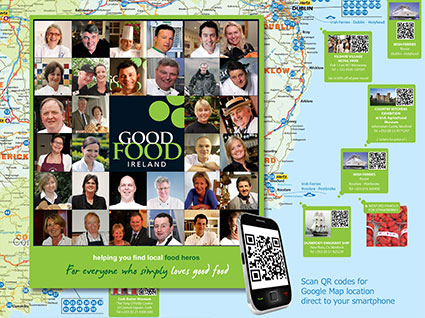THE RESEARCH FILEMANAGING REPUTATIONS |
| COLM CAREY RATES REPUTATION AS A PRIORITY FOR MARKETERS |
Some of the most stringent laws we have relate to reputation. Libel and defamation bring heavy penalties on the basis that your reputation is sacrosanct. Anyone maliciously damaging it faces the full rigour of the law. A self-inflicted fall from grace can have disastrous consequences whether it stems from dodgy business dealings, getting caught with something illicit, or falling out of a nightclub in the early hours of the morning having lectured others on the evils of drink.
In the corporate world, reputation is equally important. A company’s value is directly linked to its reputation. Customers and investors are keenly alert to the reputations of the companies they deal with. Anything seen in a negative light impacts on share price and consumer support. Recent events have signalled that 2013 could be the year of reputation management. Some commercial names have found their reputations tarnished due to actions that, while legally acceptable, struck people as a bit sharp. Ethics and big business have always been uncomfortable bedfellows. There is a tension between them that makes fighting celebrity couples look blissful by comparison.
Anything that affects corporate reputation impacts on brand image and consumer popularity. You cannot separate corporate activiities from the fate of its brands. If marketing works hard to present a strong image to the world and another is playing fast and loose with company rules, consumers will pick up on the dysfunctionality and vote with their wallets. Falling sales trigger a re-evaluation in investors and before you can say tax avoidance, the whole house of cards starts to wobble.
A number of reputations have been showing signs of damage recently. Starbucks got in trouble when it was realised they were putting less back into the UK tax system than had been imagined. Nothing illegal here you may say, but the issue added fuel to those who consider the global coffee chain to be part of an evil empire that seeks to homogenise the world.
Amazon and Google got into a similar situation resulting in Westminster denouncing them for the way they do business. Again, nothing illegal, but the reputation of companies that like to present a squeaky clean image took a hit. It is not only corporates that hit the skids from time to time. Tour de France supremo Lance Armstrong took down not only his own reputation but also that of an entire sport and its governing body with his reluctant admission of doping. Whatever personal motives drove Armstrong, the fallout has been disastrous for officials, sponsors and competitors, past, present and future. Armstrong’s weak mea culpa interview with Oprah plays into a particularly American form of Christianity which likes to see sinners repent in a public forum. Oprah plays the role of high priestess taking the confession and sending signals as to whether the sinner deserves redemption or needs a bit more time in the stocks to satisfy the mob’s need for humility.
Burger King’s decision to source its burgers from an alternative supplier following the equine DNA contamination disaster showed once again how reputation is paramount in the world of commerce. The tension between marketing and finance has never been so evident. Marketing must now seize the opportunity to exert more influence in the boardroom as it appears that the activities of finance in seeking to maximise profit and cut costs have been responsible for damaging reputations that take years to build, but are destroyed in days. A clear example of how damaging the tension between the two divisions can be seen in the shambles perpetrated by AIG, the insurance company bailed out by US taxpayers. In a bid to rebuild its tattered reputation, the insurer’s marketing people created a TV campaign with staff thanking taxpayers for their support. A week into the campaign the company’s legal eagles announced they were suing the federal government, aka the taxpayers, on the basis that shareholders had not received enough compensation in the bail out. The decision was reversed but the damage was done in a classic Laurel and Hardy “another fine mess” scenario.
SHOPPING WITH CAUTION
Irish consumers are cautious when parting with hard earned cash, a study by Delve Research indicates. The December survey shows Lidl and Aldi with a firm grip on their positioning as the cheapest supermarkets. Tesco boasts the best range of branded products and top value. Dunnes is seen as having the best choice of Irish products, followed closely by SuperValu. Diversity is a key factor, with most consumers shopping across the main retailer brands.
 |
NATURAL STRATEGYGood Food Ireland is a marketing exercise in extolling the virtues of the best of Irish produce. Food producers have their fingers crossed that ‘burgergate’ will not have any serious detrimental effects on the image of brand Ireland. |
Aldi and Lidl have picked up share as austerity continues to bite. Just 17 per cent believe they will spend more on DIY and home improvements in 2013, but there is a slight lift in the number expecting to buy more appliances this year. Referring back to the issue of reputation, the banks continue to suffer, rating low on scales of trust, responsibility and understanding consumers, indicating that the road back is a long one when you lose customer confidence.









